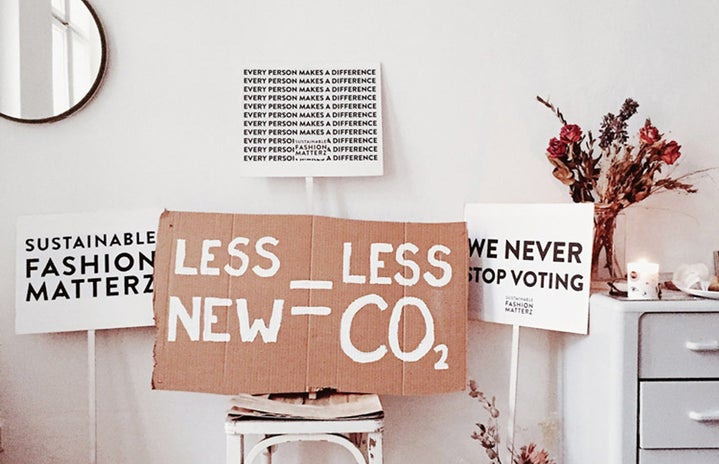For someone who has had to set screen limits on their TikTok in order to actually have a productive life, there have been very few trends that I’ve actually liked. By trends, I don’t mean the handful of short comedic sounds that crop up every month and then fade out to oblivion, I mean what TikTok is telling me I need to buy.
From my understanding, the can’t-live-without items this past holiday season were literally everywhere on social media. Aside from the fact that I can’t afford a Stanley Cup or Mini Uggs, I thought I was immune to influencing (I am, in fact, not immune. I got a pair of knock-off Mini Uggs for Christmas).
But at the same time, I noticed a different side to TikTok at the same time: de-influencing. My initial thought was that this was a rebranding of minimalism, where the first videos I saw were people throwing out excess clothes and coffee mugs, which didn’t interest me because I hate minimalism. However, the message of de-influencing has been clarified. The main message of a lot of these videos is being told that you don’t need to buy something. More importantly, the things you have are reusable and can be loved again and again. For example, learning how to mend clothes you love instead of buying new ones or just using your one favorite blush, instead of copying an influencer’s makeup collection with a dozen.
The influencer has been the business model and the advertising vehicle for an endless list of brands in recent years. People have amassed millions of dollars just by telling other people to buy things. I understand why it works and I understand why it has worked on me, because some of these ads can be so casual about the product instead of pushing it in your face like a regular commercial. Social media sites do have their users specify in their post when they are advertising something, but good influencers can make an ad seem like a genuine post.
What I like about de-influencing can be explained at both the broader and the personal level. Broadly, I love that in today’s world of overconsumption and being constantly drowned in advertisements, there is one trend that celebrates sustainability and regulates consumption. What’s popular on social media— from clothes to makeup to water bottles— will certainly not be popular a year or even a month from now. This leads to an endless cycle of trying to fit into an ever-evolving and purposely unattainable standard, one that’s bad for your wallet and environment.
What I like about it personally is that I am so slow to change and I love something that I can keep up with. I’ve been trying recently to buy what I want to buy and focus less on what the must-have item of the month is. It’s exhausting having a dress be super in for a while and then a few minutes later it’s gone from existence and littering the thrift stores. I want this trend to go on and I want it to be more accepted to take things slow and find out who you are personally.
Many things advertised on social media surely have some merit to them— if that many people like, it there has to be a reason— but I’m past polished influencers and their ad deals that pay as much as my student loan debt. It’s much more palatable to know that I’m fine with what I have, and that there is a growing movement to counteract the endless barrage of products and advertising that has overtaken social media.


